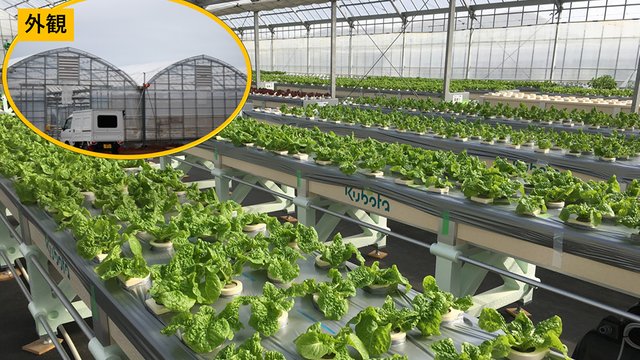Creating farms for disabled employment in regional areas
It can be hard to find a good job. If you live in a regional area with fewer big companies, it is harder still. If you are also disabled, your options are further limited. But a Japanese company is creating jobs for such people by setting up farms funded by private companies.
In March, JSH Co., Ltd opened its third Cordiale Farm, which mainly employs workers with intellectual or mental disabilities. All three facilities are located in Goto City, Nagasaki Prefecture, in southern Japan.

(Image: jsh-japan.jp)
JSH offers private firms farming facilities and personnel training. In return, the companies pay it rental fees for the facilities, a service fee and support costs. It creates an easy way for firms to meet national legal quotas for employment of the disabled.
Fewer career opportunities beyond big cities
In April 2018, Japan increased the legal requirement for employment of the disabled to 2.2% of overall staff from 2.0%. But the change had limited effect in regional areas, where there are far fewer firms that meet the requirement criteria of having a total of more than 45.5 employees. In Goto City, for example, where only a few organizations are that size, such employment of the disabled is only around 1%.
JSH says there are many disabled people in regional areas who want to work and earn a wage just like everyone else. To help them feel comfortable in the job and stay in it, JSH provides daily, practical support for the employees that includes farming instruction and medical care.
A conducive, barrier-free environment
The farms are based on hydroponic cultivation inside plastic greenhouses. The environment is barrier-free, and transport to and from each farm is provided.
Either a nurse or an employee with experience at a welfare facility for the disabled is permanently stationed and helps workers care for their health by taking their blood pressure or temperature, or confirming that medication is taken correctly.
Among JSH’s other businesses, it runs a home-visit nursing care service tailored to mental health needs, which gives it access to many working nurses and practical understanding of the requirements of the mentally disabled.
JSH hopes that this creation of job opportunities in regional areas will help the workers and regions prosper.
Making action easy
For the client companies, JSH’s support makes it much faster and easier than starting up a workplace suitable for the disabled all on their own.
Among practical concerns, farms in regional areas are cheaper than those in urban centers and suburbs, particularly when it comes to labor costs.
JSH also works cooperatively with regional administrative organizations, such as the disabled welfare departments and social welfare sections of local governments, hospitals and public employment offices.
Boosting the workforce
If the disabled can support themselves, it will surely reduce the stigma they experience. Also, as Japan suffers from low workforce numbers due to an ageing society, it makes sense to enable everyone to get involved. To do that, we need to focus on what people can do, not what they can’t.
[Website] JSH Co., Ltd (Japanese)
(This article was originally published on Zenbird Media.)
Additional Resources
Zenbird Media Homepage
More on enabling disability
More on regional revitalization